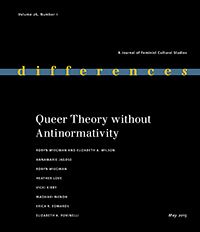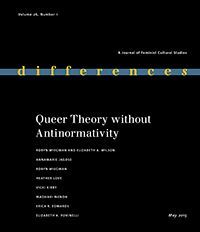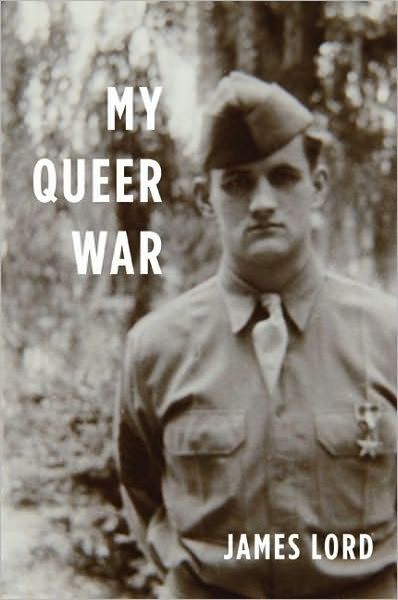Queer Theory without Antinormativity
The tyrannies of sexual normativity have been widely denounced in queer theory. Heteronormativity, homonormativity, family values, marriage, and monogamy have all been objects of sustained queer critique, most often in purely oppositional form: as antinormativity. The contributors to this special issue ask a seemingly simple question of this critical code: can queer theory proceed without a primary allegiance to antinormativity? These essays offer an affirmative answer either by rethinking normativity or eschewing it altogether in order to redirect the intellectual and political energies of the field. Can queer theory proceed without an allegiance to antinormativity? The introduction to this special issue establishes the value of this question by staging an encounter with the most widely held assumption in queer theory today: that the political value of the field lies in its antinormative commitments. The first section of this introduction demonstrates how profoundly the history of queer theorizing has been shaped by an antinormative sensibility, one that has organized the multiple and at times discordant itineraries of analysis that comprise the queer theoretical archive into a field-forming synthesis. In part 2, the authors offer a more studied consideration of the character of norms. By articulating the difference between a norm and the terms that often define it - domination, homogenization, exclusion, hegemony, identity, or more colloquially, the familiar, status quo, or routine - this section demonstrates the importance of renewing queer theoretical attention to the conceptual and political particularity of normativity as a distinct object of inquiry. The authors? aim is not to dismiss the political agenda that antinormativity has come to represent for queer inquiry, but to channel some of the field?s energies toward analyzing the critical authority it now wields. This entails promoting scholarship that not only rethinks the meaning of norms, normalization, and the normal but that also imagines new ways to approach the politics of queer criticism altogether. In the final section, the authors describe the specific contribution of each of the volume?s essays to this endeavor.
- Introduction by Robyn Wiegman and Elizabeth A. Wilson
- IHLIA LGBTI Heritage
- themanummers
- queer.the.wit.b.N296553
- homoseksualiteit
- homonormativiteit
- queer theory
- heteronormativiteit
- lhbtq+
- homonationalisme
Bij bronnen vindt u soms teksten met termen die we tegenwoordig niet meer zouden gebruiken, omdat ze als kwetsend of uitsluitend worden ervaren.Lees meer







